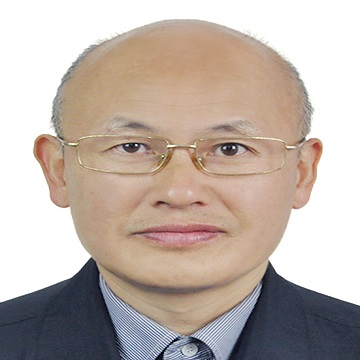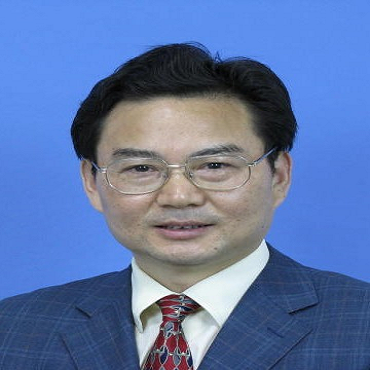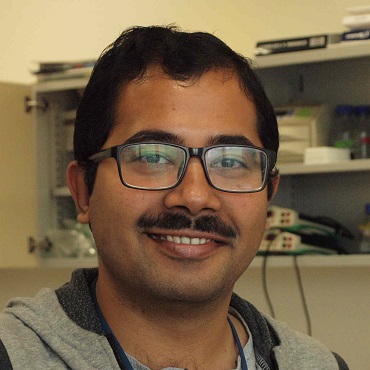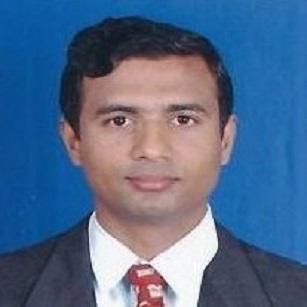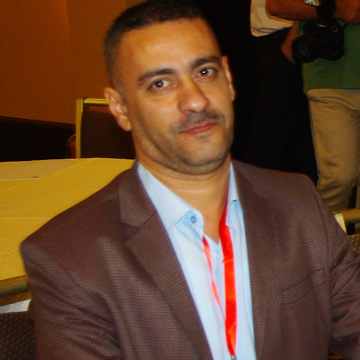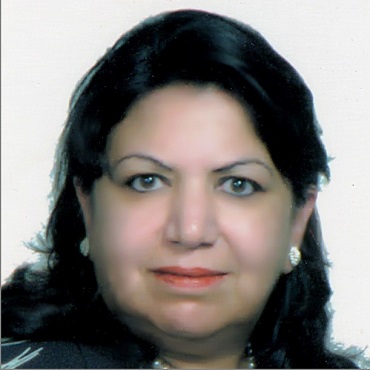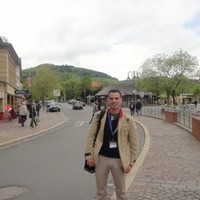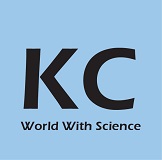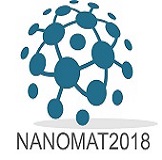
Chemistry Research 2018
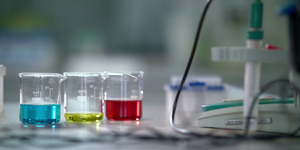
Theme: Technological Advancements and pioneering research in Chemical Sciences and its allied fields
International Conference on Chemistry and Applied Research cordially welcomes the Global audience to participate in the conference which is to be held at Prague, Czech Republic from October 29-30, 2018. The main theme of the conference is “Technological Advancements and pioneering research in Chemical Sciences and its allied fields”. This international Convention provides a platform for researchers and scientists to express research articles, review research articles on a series of Chemistry research. Research involves searching for new knowledge, new solutions, and new ways of thinking through the path of discovery. It involves diligent inquiry and systematic observation of phenomena.
Session1: Chemical Biology
Chemical Biology is a relatively new field which involves both Chemistry and Biology. It includes a wide range of techniques, tools that are used to study biological systems. This field differs from biochemistry which studies the chemical reactions and molecular structure of compounds inside living organisms. Chemical biology on the other hand involves stimulating biological systems using chemicals. One example of chemical biology is the potential use of stem cells. Stem cells have the potential to cause rapid production of cells of any type in the human body. Stem cells can be used to regenerate damaged organs, tissues and in the treatment of cancer. Chemical biology has the potential to control stem cells by removing certain compounds which shall cause them to react differently.
Chemical Biology Conference | Chemical Biology Workshop | Chemical Biology Meeting | Chemistry conference | Chemistry work
Related Association
EMBL Conference: Chemical Biology 2018 EMBL Heidelberg, Germany | Artificial Water Channels: Faraday Discussion Glasgow, United Kingdom | Advances in Chemical Biology Frankfurt, Germany
Session 2: Organic Chemistry
Organic Chemistry studies the structure, properties and behaviour of compounds containing carbon-hydrogen bonds. Sometimes organic and inorganic chemistry overlap in some research subject areas but overall they are different. Most biological chemicals generated by plants and animals are organic in nature and have carbon-hydrogen bond. Organic compounds can contain a few atoms to extremely long polymer chains of molecules where thousands of atoms form one molecule. All life on earth is carbon based and therefore organic chemistry also forms the basis of bio chemistry. Its related subjects are Carbohydrate chemistry, Stereochemistry and Synthetic chemistry. Organic Compounds play a major part in development of common household goods like chemicals, plastics, drugs, fuels etc.
Organic Chemistry Conference | Organic Chemistry Workshop | Chemistry congress | Chemistry workshop
Related Associations
Session 3: Physical Chemistry
Physical chemistry combines the techniques of physics and chemistry to study the physical characteristics and properties of molecules. This helps us to learn more about the molecules, their structures and how the structures of chemicals are affected by it. In physical chemistry we study how atoms combine to form particular molecules etc. Which reactions occur, which reactions do not take place, and how fast the reactions are taking place, comes under chemical kinetics which is another branch of physical chemistry. Chemical thermodynamics is concerned with changes in energy like heat, light, work etc. which have a chemical nature in them. The branch of physical chemistry is divided into many branches like Electrochemistry, Photochemistry, Thermochemistry, Spectroscopy, Chemical Kinetics etc.
Physical Chemistry Conference | Physical Chemistry Workshop |Chemistry workshop | Chemistry congress
Related Associations
Session 4: Inorganic Chemistry
Inorganic chemistry is the study of the structure, properties and reactions of all chemical elements and compounds. This field is primarily concerned with the properties of non-organic compounds which involve metals, minerals and organometallic compounds. It has applications in chemical industry including catalysis, materials science, fuels and agriculture. Descriptive inorganic chemistry focuses on the classification of compounds according to their properties. Inorganic compounds are used as catalysts, medicines, fuels etc. They have high melting points and low electrical conductivity properties. Certain inorganic compounds like ammonia, Chlorine, Titanium dioxide have specific uses. Inorganic chemistry is a practical field and sometimes a nation’s economy is judged by its production of sulphuric acid because it is one of the most important material used for industrial production.
Inorganic Chemistry Conference | Inorganic Chemistry workshop | Chemistry workshop | Chemistry conference
Related Associations
Session 5: Polymer Chemistry
Polymer chemistry is the study of large complex molecules that are built up of many smaller molecules. It is the study of how many smaller building blocks combine and create large building blocks by manipulating the molecular structure of polymers/monomers used which affects the property of the final product. Industrial polymer chemistry focuses on the application off end-use products, with emphasis on applied research and preparation. Career areas in Polymer chemistry include Biotechnology, Medicinal Chemistry, Nanotechnology and Textile Technology. Polymer chemists are hired in fields like Adhesives, Agriculture, Biotechnology, Chemicals, and Coatings etc.
Polymer Chemistry Conference | Workshop on Polymer Chemistry | Chemistry conference
Related Associations
Session 6: Surface Chemistry
Surface chemistry concentrates on the study of chemical processes that occurs at the interface of two phases like solid-liquid interphase, solid-gas interphase, solid-vacuum interphase and liquid –gas interphase. It involves the concept of heterogeneous catalysis, semi-conductor device fabrication, self-assembled monolayers and adhesives. It is closely associated with surface engineering which aims at modifying the chemical composition of a surface by incorporating selected elements which produce desired results in the properties of the interface. The relationship between composition and structure is studied through ultra-high vacuum techniques, low energy diffraction, scanning tunnelling microscopy etc. Surface chemistry is of particular importance to fields like electrochemistry, heterogeneous catalysis and geochemistry.
Surface Chemistry Conference | Surface Chemistry Workshop | Chemistry conference | Chemistry congress
Related Associations
Session 7: Chemical Engineering
Chemical engineering involves broad fields of technology. Chemical engineers conceive design and produce materials – starting from laboratory experimentation to full scale production. Chemical engineers are involved in plant design, plant operation, construction specialization, safety and hazard assessments, process design and analysis and operating instructions. Chemical engineering techniques and processes are utilized to design DNA sequences. Chemical engineering design also concerns the creation of new plants or plant modifications. Chemical engineers investigate the creation of new polymer materials with important electrical, optical and mechanical properties.
Chemical Engineering Conference | Chemical engineering Workshop | Chemistry congress | Chemistry conference
Related Associations
Session 8: Biochemistry
Biochemistry is also called biological chemistry. It is the study of chemical processes within living organisms. Biological processes give rise to the convolution of life through biochemical signals and the flow of chemical energy through metabolism. Biochemistry is successful in explaining living processes and now all life science fields like medicine, botany, zoology are engaged in biochemical research. It is closely associated with molecular biology. In nutrition, biochemists study wellness and fitness of health and the side effects of nutritional deficiencies. In agriculture, biochemists study soil and fertilizers and find ways to improve crop cultivation, crop storage and control of pests.
Biochemistry conference |Biochemistry Workshop |Chemistry congress | Chemistry conference
Related associations
Session 9: Drug Discovery
Drug discovery is the process through which potential new medicines are identified. It involves scientific site targeting within the body and typically concerned with quality and duration of drug presence. Drug discovery is related to a wide range of disciplines like biology, chemistry and pharmacology. It includes several steps like identification of candidates, synthesis, characterization, screening and testing for therapeutic efficacy. Drug delivery is heavily dependent on dosage form and route of administration. Drug discovery is important to understand how disease and infection are controlled and eliminated at the molecular level in specific targets.
Drug Delivery conference | Medicinal Chemistry Conference |Chemistry Workshop | Chemistry conference
Related Associations
Session 10: Biotechnology
Biotechnology overlaps with the fields of bioengineering, biomedical engineering, bio manufacturing, molecular engineering etc. It includes a wide range of processes for modifying living organisms according to the human purpose. The Modern use of biotechnology includes genetic engineering as well as cell and tissue culture technologies. Biotechnology utilizes cellular and biological systems or parts of biological living organisms to develop new products. Biotechnology is the integration of natural science and organisms, cells and molecular analogues for products and services. Biotechnology also includes bioinformatics, bio process engineering, bio robotics and chemical engineering.
Conference on Biotechnology | Biotechnology Workshop | Chemistry Workshop | Chemistry conference
Related Associations
Session 11: Agricultural Chemistry
Agricultural chemistry involves chemical and biochemical processes in the soil and plants, the mineral nutrition of plants, use of fertilizers to improve agricultural production etc. Agricultural Chemistry highlights the relationship between plant kingdom, animal kingdom, micro-organisms and their environment. It expands the understanding of causes and effects of biochemical reactions related to plant and animal growth, it develops chemical products that will bring desired control and assistance in the products. Agricultural chemistry is most often linked to food and fiber production, specifically for human consumption.
Agricultural chemistry Conference | Agricultural Chemistry Workshop | Chemistry Workshop | Chemistry conference
Related Associations
Session 12: Analytical Chemistry
Analytical chemistry studies methods that are used to separate, measure, identify and quantify matter. It includes practices like quantitative analysis and qualitative analysis. Quantitative analysis is used to measure the numerical amount and concentration. Analytical chemistry is used for experimental design, chemometrics and creation of new measuring tools. Analytical Chemistry has applications in clinical analysis, Forensic science etc. Analytical chemistry can be sub-divided further based on the type of samples analysed like atomic, molecular and biological. Analytical chemists use chemical methods to determine the identity and concentration of solutions.
Analytical Chemistry Conference | Analytical Chemistry Workshop| Analytical Chemistry Symposium | Chemistry Workshop | Chemistry conference
Related Associations
Session 13: Toxicology
Toxicology overlaps all of biology, chemistry, pharmacology and medical science. The relationship of dosage and its effects on living organisms is studied through Toxicology. Chemical toxicity is affected by factors like dosage, route of exposure, species age and environmental factors. Toxicologists are experts on poisons and poisoning. Toxicity experiments are conducted on Non-human test subjects and also there are various other alternative testing methods. Medical toxicology can be practised by someone with a physician status. Clinical toxicology can be practised not only by physicians but also by health professionals who have a master’s degree in clinical toxicology.
Toxicology Conference | Pharmacology Conference | Chemistry Congress
Related Associations
Session 14: Green Chemistry
Unlike environmental chemistry which studies the effect of pollution on the environment due to nature, green chemistry focuses on the technological approach to prevent and minimize pollution and reduce consumption of non-renewable resources. Green chemistry emerged due to increasing attention paid to chemical and industrial pollution and depletion of coal and natural gas. It was first developed in Europe and United States and subsequently The Kyoto Protocol was held in Kyoto, Japan on December 11, 1997, to bring to attention the green-house gas emissions and global warming due to man-made causes. The protocol’s objective was to fight global warming by reducing greenhouse gas emissions and controlling the amount of CO2 and other harmful gases released into the atmosphere. In 2011 Canadian government announced its withdrawal from further Kyoto Protocol commitments.
Green and Sustainable Chemistry Conference | Green Chemistry conference | Chemistry Congress | Chemistry conference
Related Associations
Session 15: Chemoinformatics
The processes in Chemoinformatics are used in pharmaceutical Companies for the process of drug discovery. The primary application of Chemoinformatics is in the storage, indexing and search for information related to compounds. In Chemoinformatics the search includes topics such as Data Mining, Information Retrieval, Information indexing, Machine Learning and Artificial Intelligence. Chemoinformatics includes mixing of that information to transform data into information and information into knowledge in order to make better decisions in area of drug discovery and identification.
Conferences on Chemoinformatics | Chemoinformatics Workshop |Chemistry Congress | Chemistry Workshop
Related Associations
Session 16: Environmental chemistry
Environmental chemistry is the scientific study of the chemical and biochemical phenomena that occur in natural places. It should not be confused with green chemistry, which seeks to reduce potential pollution at its source. It can be defined as the study of the sources, reactions, transport, effects, and fates of chemical species in the air, soil, and water environments; and the effect of human activity and biological activity on these. Environmental chemistry is an interdisciplinary science that includes atmospheric, aquatic and soil chemistry, as well as heavily relying on analytical chemistry and being related to environmental and other areas of science
Conferences on Environmental chemistry | Environmental chemistry Workshop |Chemistry Congress | Chemistry Workshop
The Chemicals Industry is the second largest manufacturing industry in Czech Republic by sales, after automotive industry. The major chemical Plant clusters are in North West Bohemia, North Moravia and Central Bohemia, but chemical Plants can be found throughout the Czech Republic. The chemical industry in Czech Republic includes petroleum refining, pharmaceuticals, rubber and plastic processing industry. The products of the chemical industry include motor fuels, heating oils, lubricants, paraffin and asphalt, inorganic and organic bulk chemicals, fertilizers, basic petrochemicals, plastics, synthetic resins and rubbers, as well as paints, dyestuffs and pigments, agrochemicals, pharmaceuticals, tyres and other rubber products. In 2016 Czech chemical industry sales at current prices were Euro 22.3 billion and the industry employed 132,134 people. But nevertheless, chemical imports exceeded exports by euro 7.0 billion---a deficit that had increased by euro 1.6 billion years on year. Annual investments were euro 1.12 billion and Czech companies financed 52-72 % of R&D themselves, with the balance from EU and state funding. Collaboration between industry and academia is working well.
Global Market Analysis:-
The Chemical industry is one of the largest manufacturing industries in all of The developed and emerging countries. According to business-as-usual scenario (BAU), the chemical side of the industry is expected to grow from $3.6 to $14.4 trillion. Global petrochemical and polymer demand are expected to see a massive growth in the next few decades. The chemical industry is expected to add more than 400 new world-class steam crackers (800 kilo tons of ethylene capacity) around the world by 2055. For example, bio based feed stocks have been introduced in the food chain. Recently a new catalytic system, possibly Nano catalysis is available to convert CO2 to CH4, making CO2 a feedstock for the chemical industry. Chemistry enables energy saving solutions for all sectors of our economy.The main areas of investment will be new effective coagulants with minimum solids production, advanced absorbents for emerging contaminants removal, materials for remote wireless water sensors, smart pipe for in-situ waste-water treatment , etc.
The aerospace industry will look forward to the chemical companies to pioneer new technology to make aircraft more fuel efficient, cheaper to operate and maintain. For example , NASA is developing insect shedding airplane coatings that could allow planes to use 5% less fuel. Industrial biotechnology will be a major growth sector, and perhaps critically, water will become a limiting factor to growth. With large scale production and R&D in the Asia Pacific region, new chemical multinationals from developing countries will emerge. Strong economic growth stimulates further technological developments in the areas of molecular selection, molecular modelling, molecular design and supramolecular chemistry.
The chemical industry will have to address new challenges and conflicting issues like clean chemical processes to reduce air pollution, competition for scarce materials (supply of metals like indium, silver to be over within the next 30 years), designing at a scale bigger than molecules and smaller than bulk, (fermentation of biomass to fuel and platform chemicals, chiral reactions and glycosylation of drugs) and developing flexible plastics electronics materials
About City:-
Prague is the capital and largest city in Czech Republic and the 14th largest city in the European Union. The city has a population of 1.36 million people with The temperate climate , warm summers, and chilly winters. The city has a number of major attractions like Prague Castle, the Charles Bridge, and Old Town square with the Prague Astronomical Clock, the Jewish Quarter, Petrin Hill and Vysehrad. The city has a large number of major museums, along with numerous theatres, galleries, cinemas, and other historical exhibits. It is home to a large number of private and public schools including Charles University in Prague which is the oldest university in Central Europe. The city receives more than 6.4 million international visitors annually and is the 5th most visited European city after London, Paris, Istanbul and Rome.
Global Universities and Research centres for Chemical Sciences and Applied Research
USA
- California Institute of Technology, Pasadena CA
- Harvard University, Cambridge MA
- Massachusetts Institute of Technology, Cambridge MA
- Stanford University, Stanford CA
- University of California-Berkeley, Berkeley CA
- North-western University, Evanston IL
- Columbia University, New York NY
- Yale University, New Haven CT
- University of California--Santa Barbara
- University of Michigan--Ann Arbor
Europe
- ETH Zurich, Switzerland
- Max Planck Society, Germany
- Imperial College London, UK
- University of Cambridge, UK
- University of Oxford, UK
- National Research Council (CNR) Italy
- Technical University of Munich
- Ecole Polytechnique Fédérale de Lausanne (EPFL)
- Swiss Federal Institute of Technology Zurich
- University of Manchester
- Pierre and Marie Curie University
- Catholic University of Leuven
Asia
- Pohang University of Science and Technology
- University of Hong Kong
- Hong Kong university of Science and Technology
- University of Tokyo
- Kyoto University
- University of New South Wales
- Chinese University of Hong Kong
- Nagoya University
- University of Melbourne
- Chiba University
- Tohoku University
Czech Republic
- Charles University in Prague
- Palacky University, Olomouc
- University of Chemistry & Technology, Prague
- Masaryk University
Conclusion
International Conference on Chemistry and Applied Research aims to bring international scientists, educators, scholars, professors and other business persons in this meeting to discuss about the latest development in the field of Chemistry and its allied fields.
- Environmental chemistry
- Chemical Biology
- Organic Chemistry
- Physical Chemistry
- Inorganic Chemistry
- Polymer Chemistry
- Surface Chemistry
- Chemical Engineering
- Biochemistry
- Drug Discovery
- Biotechnology
- Agricultural Chemistry
- Analytical Chemistry
- Toxicology
- Green Chemistry
- Chemoinformatics
- Journal of Chemistry and Applied Chemical Engineering
- Journal of Biochemistry and Physiology
3 Organizing Committee Members
12 Renowned Speakers
Dr. Zhong Sheng Wang
Fudan University
China
Rui TAN
Southwest Jiaotong University
China
REN XIANG TAN
Nanjing University
China
Soumyananda Chakraborti
Jagiellonian University
Poland
FALAH HASAN HUSSEIN AL-KHAFAJI
Babylon university
Iraq
Maheshkumar Varia
Raman Research Research Institute
Bangalore
India
AMAR PRASAD YADAV
Nepal Chemical Society
Nepal
FIRAS ABDULRAZZAK
Diyala University
Iraq
HATHAMA RAZOOKI HASAN
university of Baghdad
Iraq
THIKRA HASAN MATHKOR
Baghdad University College of Science
Iraq
Ayad Fadhil Alkaim
university of Babylon
Iraq
Abdulkareem Alsammarraie
university of Baghdad
Iraq




